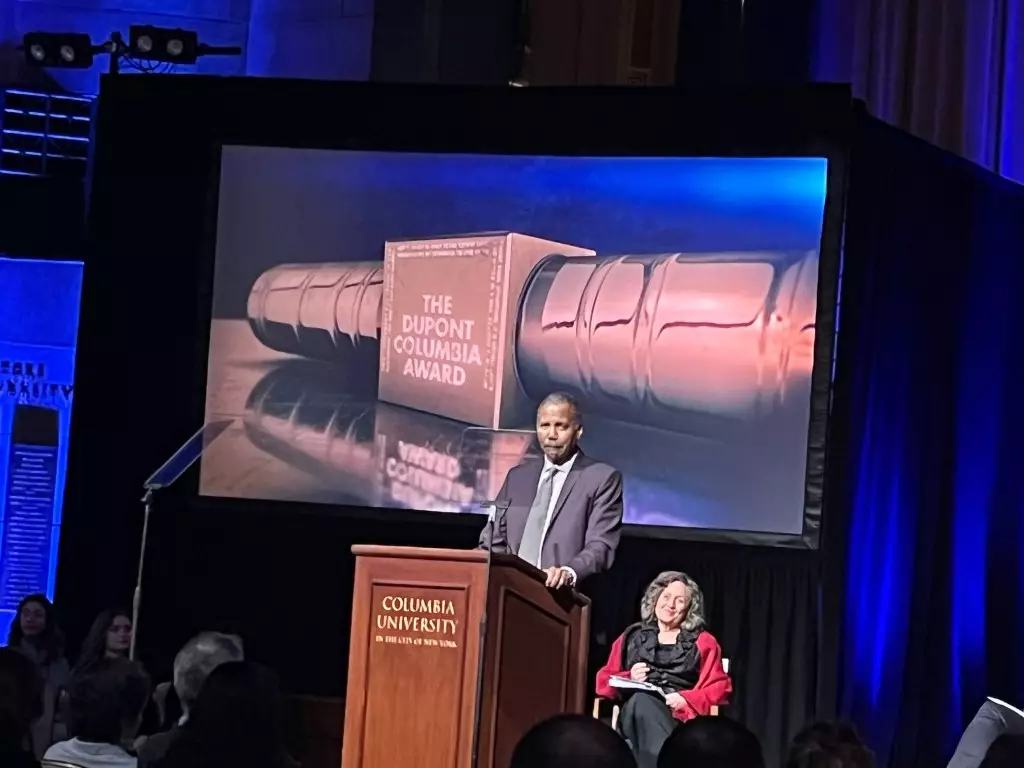The 2025 duPont-Columbia Awards ceremony marked a significant turning point in the landscape of journalism. For the first time in history, three streaming platforms—Netflix, Max, and Paramount+—claimed prestigious duPont awards, typically reserved for traditional media giants. This groundbreaking achievement highlights a broader trend: the increasing relevance and impact of streaming services in the realm of journalism and documentary filmmaking. The ceremony, held at Columbia University, saw 16 winners celebrated for their commitment to in-depth reporting and storytelling.
This year’s success for the streaming services stands in stark contrast to the absence of renowned traditional outlets like Frontline, 60 Minutes, and CNN on the list of winners. This raises an intriguing question—what does this shift mean for the future of media? It suggests a nuanced evolution where the boundaries between traditional journalism and modern digital platforms are becoming increasingly blurred.
The Current Challenges for Journalists
Bill Whitaker, a correspondent for CBS News’s 60 Minutes, co-hosted the ceremony, during which he took a moment to reflect on the complex and perilous environment in which journalists operate today. The remarks underscored that the profession is facing unprecedented challenges, particularly evident in a political climate where journalists are often labeled as “enemies of the people.” With geopolitical tensions spanning Europe, the Middle East, and beyond, and piracy against journalists rising, their safety and credibility are in jeopardy.
Whitaker emphasized the need for relentless commitment to truth-seeking and integrity in journalism. He urged journalists to “keep digging” and remain vigilant against the distrust that has crept into public perception. This sentiment resonates strongly in an era marked by critical media scrutiny and divided public opinion. It’s clear that the task of upholding democracy through factual reporting is more vital than ever.
The Role of Streaming Services in Journalism
The inclusion of platforms like Netflix, Max, and Paramount+ among the duPont winners signals a shift in how audiences are consuming news. The award-winning productions from these companies—such as HBO’s docuseries “Murder in Boston” and Paramount+’s documentary “Birthing A Nation: The Resistance of Mary Gaffney”—reveal a concerted effort to tackle pressing social issues, particularly those related to race in America. These documentaries not only engage viewers but also enlighten them on complex historical narratives in an accessible format.
As streaming services continue to raise the bar for journalistic content, they embody a new investigation style that combines artistry with advocacy. These platforms have the capacity to innovate and reach wider audiences, thus reshaping the responsibility of how stories related to society and injustice are conveyed. It poses the question: can these platforms fill the void left by traditional media in terms of thorough reporting?
Amid the celebration of excellence in journalism at the duPont Awards, the theme of trust emerged as a persistent challenge to modern-day media. NPR’s Steve Inskeep advocated for a journalism that transcends echo chambers, calling on journalists to engage with audiences who may not inherently care about stories or issues being reported. This is crucial in bridging the divides that characterize contemporary American society.
Indeed, Inskeep’s comments reflect the responsibility journalism carries—not only to inform but to educate and foster dialogue amidst the cacophony of misinformation. When media outlets strive to earn the trust of their audiences through transparency and accountability, they contribute to a more informed citizenry.
The 2025 duPont-Columbia Awards underscore a pivotal moment for journalism, epitomized by the blending of traditional and new media. As the landscape continuously evolves with changing technologies and audience preferences, it calls for reflection on what lies ahead. The awards serve as a reminder for all journalists: the commitment to quality storytelling and factual reporting is the cornerstone of a healthy democracy.
Looking forward, the challenge is not merely to adapt to the shifting ground but to flourish in it. Enhancing narrative depth and uncovering truths will form the backbone of journalistic endeavors, whether through established networks or newly ascendant streaming platforms. As we navigate this changing terrain, one thing remains clear: excellence in journalism is paramount, and its defenders—be it in traditional newsrooms or digital studios—must rise to meet the demands of their critical roles in society.

